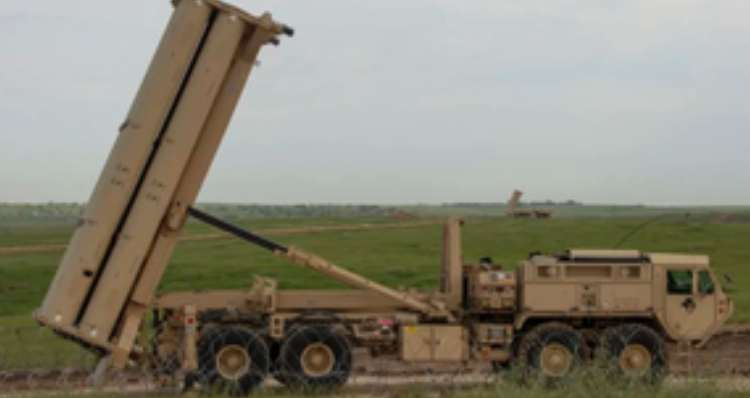America
US to deploy THAAD missile system to Israel amid rising tensions with Iran

Washington, Oct 14
The US announced on Sunday the deployment of a Terminal High Altitude Area Defense (THAAD) missile battery along with US military personnel to Israel.
The move is aimed at enhancing Israel's air defence capabilities following what the Pentagon described as "unprecedented attacks" by Iran on April 13 and again on October 1.
"At the direction of President, Secretary Austin authorised the deployment of a Terminal High-Altitude Area Defense (THAAD) battery and associated crew of US military personnel to Israel to help bolster Israel's air defences following Iran's unprecedented attacks against Israel on April 13 and again on October 1," the Pentagon (US Department for Defence) said in a statement.
"The THAAD battery will augment Israel's integrated air defence system," the Pentagon noted, adding that the deployment emphasises the US's "ironclad commitment" to defending Israel and protecting Americans in the region from any further attacks by Iran.
"It is part of the broader adjustments the US military has made in recent months to support the defence of Israel and protect Americans from attacks by Iran and Iranian-aligned militias," the statement added.
The Pentagon also pointed out that this is not the region's first deployment of the THAAD system.
Last year, the US sent a THAAD battery to the Middle East following the October 7 attacks to defend US troops and regional interests.
Additionally, the US deployed a THAAD battery to Israel in 2019 for training and an integrated air defence exercise.
On October 1, Iran fired at least 200 ground-to-ground missiles towards Israel, activating sirens across the country and sending millions of residents running to shelters.
Hours after the Iranian strike, Israeli Prime Minister Benjamin Netanyahu, during a Security Cabinet meeting, said, "Iran made a big mistake tonight, and it will pay for it."
The US has been in talks with Israel on how to respond to Iran's attack on October 1. US officials have explicitly said that they do not want Israel to attack Iranian nuclear sites.
Earlier on Wednesday, US President Joe Biden spoke to Netanyahu for the first time since August amid rising tensions between Israel and its arch-enemy Iran.
The talk was "direct" and "productive," White House Press Secretary Karine Jean-Pierre said at a press briefing on Wednesday, adding the two leaders "continued to discuss Israel's response to the (Iranian) attack last week," without providing specific details.
However, after the 30-minute call, Israeli Defence Minister Yoav Gallant, in a video issued by his office, threatened a "lethal" retaliation against Iran's attack.



































